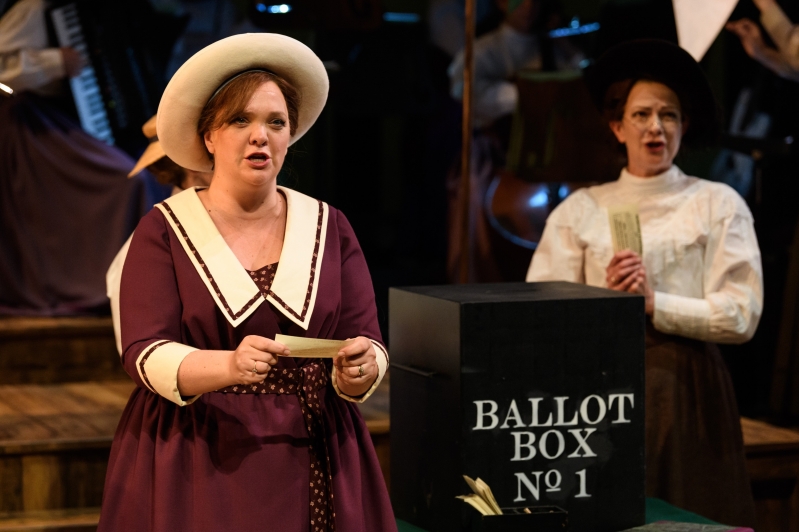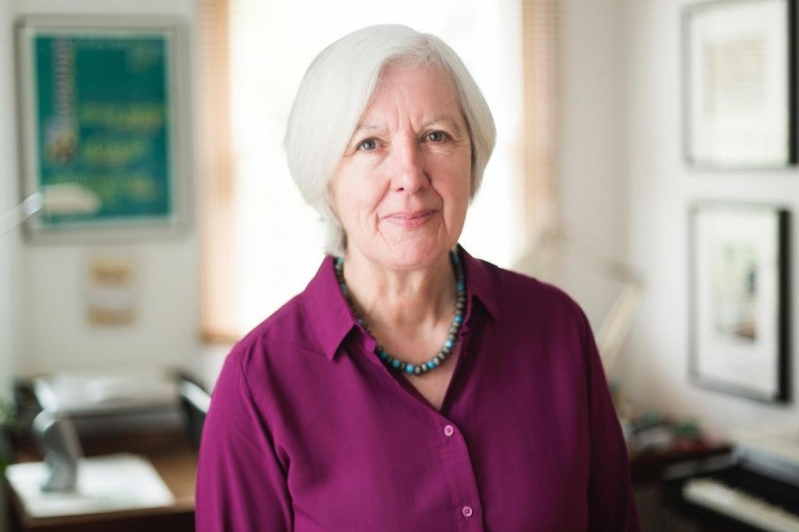
With several world class orchestras, some of the most prestigious performance venues in the world and a whole host of opera companies including The Royal Opera and English National Opera, London is a feast of top-quality musical experiences. Here are some of the female composers the city has influenced.
Ethel Smyth was born in 1858 and became one of the most prominent British composers of the time. She studied at the Leipzig Conservatory, where she met composers such as Grieg, Tchaikovsky and Clara Schumann and was encouraged by Brahms and Dvořák. Among her most famous works are her Mass in D and the opera The Wreckers. In 1911 she wrote The March of the Women, which became the official anthem of the Suffrage movement. It was also included in our 2018 commission Rhondda Rips It Up! by Elena Langer and Emma Jenkins which told the story of Margaret Haig Thomas, the Viscountess Rhondda, an unsung heroine of the Welsh Suffrage movement.
Like many activists, Smyth served two months in Holloway Prison. When conductor Thomas Beecham went to visit her, he found suffragettes singing in the quad, as Smyth leaned out of a window conducting with her toothbrush. By the 1930s, Ethel had been made a Dame and was regarded so highly that Beecham conducted a concert to celebrate her 75th birthday at the Royal Albert Hall.

In 1923 Elizabeth Maconchy began her studies at the Royal College of Music. Her tutor was Vaughan Williams, and she described his teaching ‘like turning on a light’. At the College, a group of aspiring composers, including Imogen Holst and Grace Williams, would meet weekly to debate and criticise each other’s work. Maconchy’s big break came in 1930 when Henry Wood premiered her orchestral suite The Land at the Proms. In 1931 conductor Iris Lemare, violinist Anne Macnaghten and composer Elisabeth Lutyens launched a series of concerts to showcase new music. Here Maconchy found the genre she would make her own - the string quartet. She wrote three in the 1930s which were widely broadcast by the BBC and performed across Europe.
Maconchy’s work My Dark Heart was commissioned by the Royal College of Music as part of its centenary celebrations and two years later, she wrote Music for Strings for the 1983 Proms Season. How fitting that two of the institutions that launched Maconchy’s career honoured her towards its end.

London has also been an important city in the development of Judith Weir. Many of her works have been performed at the BBC Proms and from 1995 to 2000 she was Artistic Director of the Spitalfields Festival. Weir is best known for her operas and theatrical works including The Black Spider, A Night at the Chinese Opera and Blond Eckbert. Her latest opera, Miss Fortune, premiered in 2011 at the Bregenzer Festspiele and was a co-production with the Royal Opera House. In July 2014 Judith Weir was appointed to the 395-year old royal post of Master of the Queen’s Music, in succession to Sir Peter Maxwell Davies.



